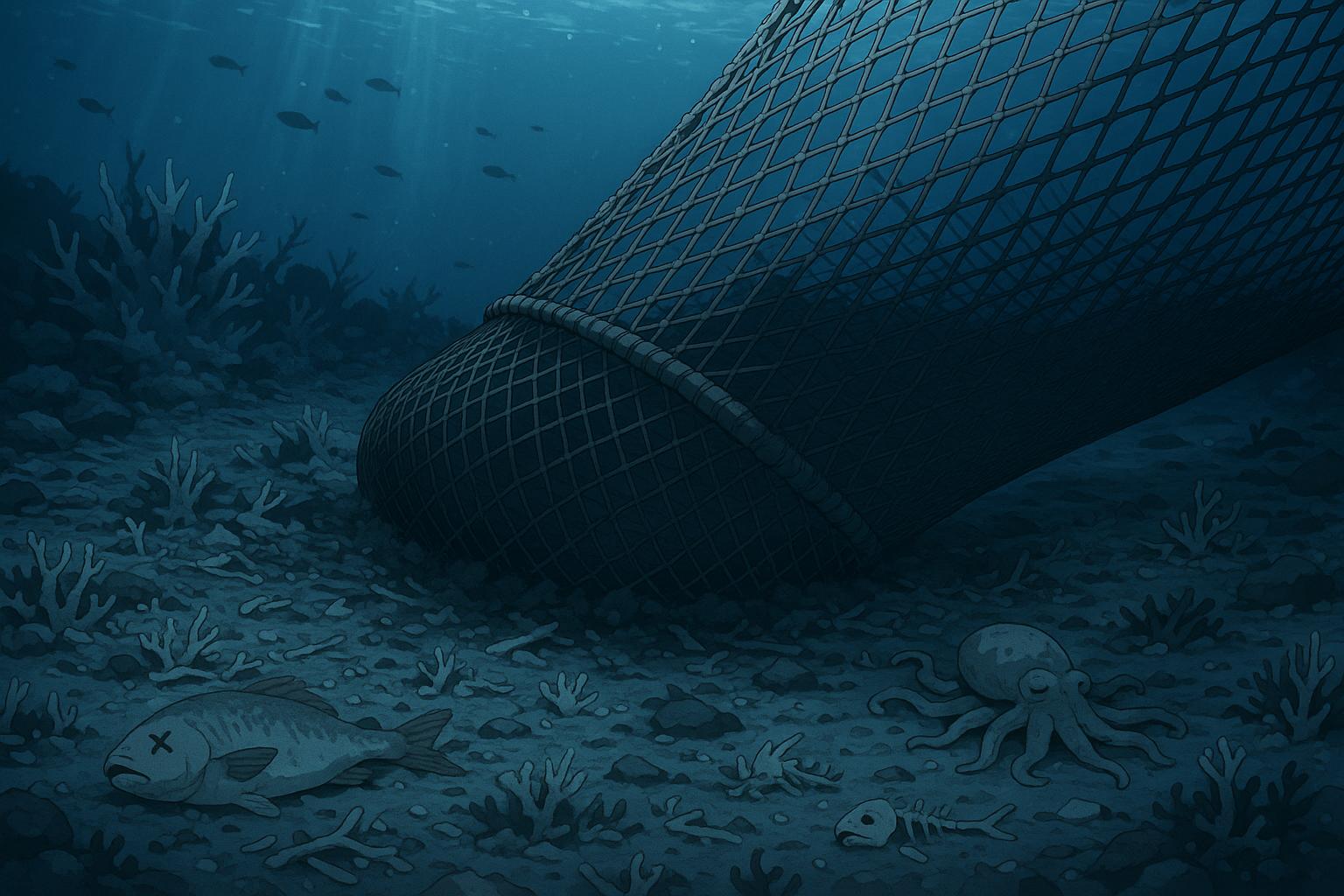David Attenborough has issued a stark warning about the devastating effects of bottom trawling on marine ecosystems, a fishing practice that indiscriminately destroys the seabed in pursuit of catch. In his latest documentary, Ocean, which coincides with the UN Ocean Conference in France, Attenborough underscores the urgent need for re-evaluation and reformation of global fishing practices. The film features striking visuals, including the first-ever footage of bottom trawling, showcasing its horrific impacts. Don MacNeish, a long-time diver and conservationist, has voiced his shock at witnessing the destruction first-hand. He describes encountering a once-vibrant underwater environment reduced to a graveyard of marine life: “It was like swimming over the Garden of Eden during a nuclear winter,” he lamented.
The technique of bottom trawling involves dragging a heavy metal frame across the ocean floor, obliterating everything in its path to capture fish. As documented by Attenborough, this practice not only devastates marine habitats but also results in significant bycatch—over three-quarters of a bottom trawler’s haul can be discarded as waste. This not only contributes to the degradation of marine ecosystems but also releases substantial quantities of CO2 into the atmosphere from disturbed seabeds, further exacerbating climate change. In illustrating the gravity of the situation, Attenborough remarked, “Some $20 billion is spent every year supporting overfishing on an industrial scale.”
Recent evidence further corroborates these claims. A study found that areas subjected to chronic bottom trawling can experience 52% reductions in organic matter and devastations in biodiversity, highlighting irreversible alterations to delicate deep-sea ecosystems. The cumulative effects of such practices are increasingly alarming, leading to not only habitat loss but also a drastic decline in marine biodiversity, particularly affecting predator species like sharks and rays.
In response to the escalating crisis, the UK government is taking proactive steps by proposing an expansion of the ban on bottom trawling. This plan would increase protected areas from 18,000 to approximately 30,000 square kilometres across 41 Marine Protected Areas. Environment Minister Steve Reed stated that the government is acting urgently to prevent irreversible damage to vital marine ecosystems, a sentiment echoed by Attenborough during the documentary’s launch.
As advocates and environmental leaders call for increased marine protections, the documentary Ocean seeks to galvanise public sentiment towards safeguarding our oceans. While some speculate about the sustainability of current practices, the documentary argues that, as our oceans dwindle in fish populations, the methods employed to maintain the industry are unsustainable and may threaten the very foundations of marine ecosystems. The documentary not only illustrates the pressing challenges but also offers a glimpse of hope through examples of successful marine conservation efforts.
At 99, Attenborough remains a poignant figure in the fight for environmental protection. He implores viewers to reflect on the stark reality of how human activities threaten the world's oceans and calls for immediate action. With only 2.7% of oceans effectively protected, achieving the global goal of protecting 30% by 2030 appears more pressing than ever, as the health of our seas is inextricably linked to the wellbeing of the planet and future generations.
📌 Reference Map:
- Paragraph 1 – [1], [3]
- Paragraph 2 – [1], [2], [4]
- Paragraph 3 – [5], [6]
- Paragraph 4 – [2], [5]
- Paragraph 5 – [3], [6]
Source: Noah Wire Services
